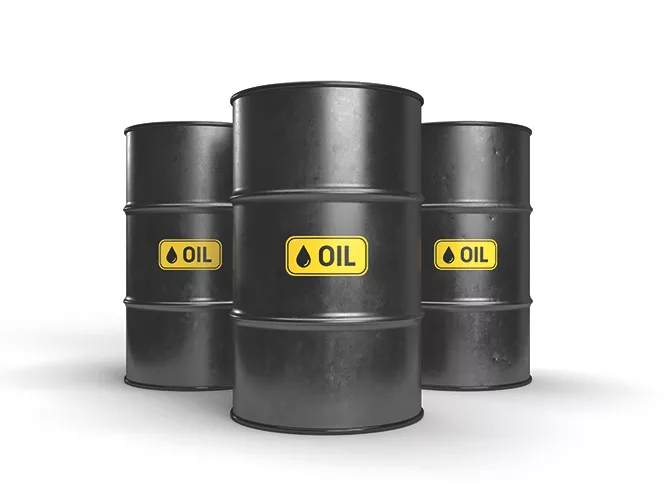Oil prices are torn between rising conflict-related events risking the supply side and the slowing of the global economy. If the Israel-Hamas war remains largely in the Gaza Strip — where there is no oil-producing infrastructure — the impact will be negligible.
However, we could see oil supply disrupted should President Joe Biden bow to mounting pressure to choke off illicit exports of Iranian crude in response to Iran’s alleged involvement in the Hamas attacks on Oct. 7.
Exacerbating the supply side, the Lease Sale 261 mentioned last month that was rescheduled to be held Nov. 8, 2023, has been postponed again by the Bureau of Ocean Energy Management, pending the outcome of the ongoing lawsuit over oil and gas development and the federal protection of an endangered whale species.
The U.S. oil and gas industry stands ready to support the nation’s energy security through reliable, lower-carbon-intensive energy produced in the Gulf of Mexico. However, the Interior Department’s inconsistent policies undermine the certainty required for investing in future production.
The Biden administration has suspended Venezuelan oil and gas sanctions. The Treasury Department issued a six-month general license temporarily authorizing transactions involving the oil and gas sector in Venezuela. The suspension will remain in place until 12:01 a.m. on April 18, 2024.
“On the heels of announcing the smallest five-year oil and gas leasing plan in decades for the United States, the administration is turning to Venezuela,“ notes U.S. Sen. Joe Manchin. Yet, Biden officials want to allow more Venezuelan oil exports to “help make up the production that they refuse to allow in America.”
The Biden administration is “looking in all the wrong places for energy” and “easing up on the worst regimes in the world, says Sen. Lisa Murkowski.
NLRB Ruling
In addition, the construction sector of our economy impacting the PVF sector has been dealt a devastating blow by the National Labor Relations Board. Its final ruling expands the definition of a “joint employer” under the National Relations Act, effective Dec. 26, 2023.
“It will result in massive confusion for construction contractors as well as increased liability and risk, making them less likely to hire subcontractors, most of which are small businesses,” explains Karen Livingston, senior director of policy for the Associated Builders and Contractors. “This will ultimately cause needless delays and cost inflation on taxpayer-supported infrastructure projects.“
Union groups praised the rule. AFL-CIO President Liz Schuler stated: “Too many employers use intermediaries [such as] staffing firms or temp agencies to evade their responsibilities under the law” and that the new rule “ensures … union members can bargain with each company that has the power to make changes in the workplace.”
On a positive note, Enterprise Product Partners is investing more than $3 billion on a series of new projects expanding its existing natural gas processing and gathering systems in the Delaware and Midland subbasins of the Permian basin.
Predicated on its internal projection for increasing natural gas liquids (NGL) production growth in the Permian as well as the Rocky Mountian and San Juan basin, Enterprise plans on building and wholly owning a new 550-mile Bahia pipeline to transport 600,000 barrels/day of NGLs to the company’s fractionation complex in Chambers County, Texas.
The pipeline will consist of a 24-foot diameter segment from the Delaware basin connecting to a 30-inch diameter segment from the Midland basin to Chambers County. The pipeline is scheduled to go into service during the first half of 2025.
Hydrogen Hubs
The Biden administration granted $7 billion in funding to seven U.S. “hydrogen hubs” that will now negotiate final funding details with the U.S. Energy Department and will propel another $43 billion in private funding.
Three states — Pennsylvania, Montana and Wisconsin — are part of two hubs that some report are linked to their being political swing states in the 2024 election.
The Mid-Atlantic Clean Energy Hub (southeastern Pennsylvania, Delaware and southern New Jersey) will repurpose legacy oil infrastructure and use renewable and nuclear power for hydrogen production. It is set to receive $750 million and promises 14,000-plus construction jobs.
The United Association of Union Plumbers and Pipefitters said that “members stand ready to help build the new hydrogen economy.” The hubs could take up to 12 years to complete and must provide 50 percent of the funding.
Of note: Bloomberg reports that MRC Global is exploring a potential sale under pressure from activist investor Engine Capital. The Houston-based MRC Global is working with financial advisors to seek potential buyers. No final decision has been made, and MRC could opt to remain independent.
Keep an Eye on Supply Chains
Israel’s prosecution of the war with the Hamas and the possibility of an escalation of U.S. involvement means the supply chains for offshore raw materials, finished and unfinished PVF products (welding fittings, forged flanges, steel pipe and valves) are at high risk.
Those companies dependent on offshore sources should, if they have not already done so, prepare contingency plans for worst-case scenarios. Predicated on many conversations with knowledgeable people, it is no longer if but when hostilities will erupt, causing chaos in our supply chains.
Again, a note of caution: Many companies have engaged sources from Vietnam as a contingency plan for supplies of carbon steel butt-welding fittings.
If these products were produced from Chinese rough fittings, it could be an attempt to circumvent specifications barring the use of Chinese material on domestic projects funded with taxpayer monies in addition to the circumvention of U.S. anti-dumping orders for 12-inch and smaller fittings that have been in force for several years.
The demands of the megaprojects continue to drain the pool of skilled labor by drawing large numbers from local markets, presenting problems for smaller construction projects in various sectors of our industry.
PVF Roundtable News
With this in mind, the PVF Roundtable continues to work diligently to support the education and training of young associates for the PVF sector by providing scholarships through the PVF Roundtable Charitable Foundation.
The Christmas meeting and Casino Party were held Dec. 12; an update will appear in the next issue.
Major announcement: This year, the PVF Roundtable exceeded $2 million in total scholarships distributed by the PVF Roundtable Charitable Foundation since its inception. These scholarships are given to trade schools and universities for the development of a skilled labor force to meet the increasing demands of the PVF industry.
Distributions for the first half of 2023 were announced at the Oct. 10 meeting. The scholarships awarded at the meeting were: ABC Pelican Schools, Baton Rouge, La., $65,000; Lamar Institute of Technology, Beaumont, Texas, $65,000; Houston Community College, Houston, $65,000; Lee College, Baytown, Texas, $65,000; San Jacinto College, Pasadena, Texas, $65,000; and DelMar College, Corpus Christi, Texas, $25,000.
The PVF Roundtable Golf Tournament and TroutBlast were the major fundraising events scheduled in 2023. The Weldbend Corp., Ferguson Industrial and MRC Global were key sponsors of these events.
As a member of the board of directors, and I speak for all members, we sincerely thank you for your participation in these events.
With the uncertainties in the current turbulent PVF market, these meetings are a unique venue for you and your associates to network with your peers in the PVF industry. These events provide the platform to share information, discuss pertinent issues, meet new contacts, develop new, long-lasting friendships, and pursue new opportunities in the industry.





